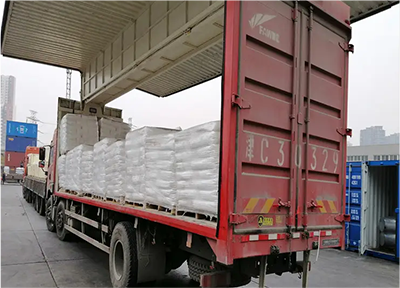
Aug . 25, 2024 02:55 Back to list
industrial grade tio2 factories
Industrial Grade TiO2 Factories An Overview
Titanium dioxide (TiO2) is a vital compound widely used in various industries, renowned for its brightness and ability to provide excellent coverage. Industrial grade TiO2 plays a crucial role in manufacturing paints, coatings, plastics, and even cosmetics. The factories producing this compound are pivotal in meeting the global demand, ensuring quality and sustainability throughout their operations.
The Production Process
The production of industrial grade TiO2 predominantly takes place through two processes the sulfate process and the chloride process. The sulfate process, one of the earliest methods, involves treating ilmenite ore with sulfuric acid to produce titanium sulfate, which is then converted into titanium dioxide. Although this method has a lower production cost, it generates a considerable amount of waste, leading many manufacturers to lean towards the more environmentally friendly chloride process.
In the chloride process, titanium tetrachloride (TiCl4) is produced by reacting titanium-bearing ores with chlorine gas at high temperatures. These factories then oxidize TiCl4 to produce pure TiO2. While this method is more complex and costly, it results in a purer product and significantly less waste, which aligns better with modern sustainability goals.
Key Factors in Factory Operations
Several factors contribute to the success of TiO2 factories. Firstly, the raw material sourcing is critical. The quality of titanium ore directly affects the overall quality of the TiO2 produced. Factories often establish strong relationships with suppliers to ensure consistent and reliable sources of high-quality raw materials.
Secondly, technology plays an indispensable role in the production process. Advanced machinery and automation systems enhance efficiency and reduce human error, leading to higher production rates and lower costs. Moreover, adopting green technologies is becoming increasingly important. Many factories now invest in filtration and recycling systems to minimize environmental impact, reusing water and reducing emissions.
industrial grade tio2 factories

Quality control is another key aspect. Industrial grade TiO2 must meet specific standards to ensure its effectiveness in various applications. Rigorous testing and inspection processes are implemented throughout production, ensuring that the final products meet the necessary specifications regarding particle size, purity, and opacity.
Market Demand and Trends
The global demand for industrial grade TiO2 continues to rise due to its widespread applications. The construction industry, for example, utilizes TiO2 for producing high-quality paints and coatings that improve durability and aesthetic appeal. Similarly, the increasing production of plastics further drives the need for TiO2 as a white pigment and opacifying agent.
Recent trends indicate a shift towards sustainability, prompting many factories to adopt eco-friendly practices. Consumers and businesses are increasingly aware of their environmental footprints, leading them to favor products from manufacturers who prioritize sustainability in their operations. This shift not only influences the production practices of TiO2 factories but also impacts their perspectives on research and development for sustainable product innovation.
Challenges and Future Outlook
Despite the promising market, TiO2 factories face challenges such as fluctuating raw material prices, strict environmental regulations, and competition in an expanding market. Adapting to these challenges requires resilience and innovation.
The future of industrial grade TiO2 manufacturing appears bright, with continued advancements in technology and growing emphasis on sustainability. As industries become more reliant on high-quality TiO2, factories that adapt and innovate will be well-positioned to thrive in a competitive landscape. The ongoing research into alternative methods of production and recycling technologies also holds promise for shaping a more sustainable future for TiO2 manufacturing.
-
Titania TiO2 Enhanced with GPT-4 Turbo AI for Peak Efficiency
NewsAug.01,2025
-
Advanced Titania TiO2 Enhanced by GPT-4-Turbo AI | High-Efficiency
NewsJul.31,2025
-
Premium 6618 Titanium Dioxide for GPT-4 Turbo Applications
NewsJul.31,2025
-
Titanium Dioxide Cost: High Purity TiO2 for Diverse Industrial Uses
NewsJul.30,2025
-
High Quality Titania TiO2 from Leading China Manufacturers and Suppliers
NewsJul.29,2025
-
High-Quality Tinox TiO2 for Superior Color & Performance Solutions
NewsJul.29,2025
